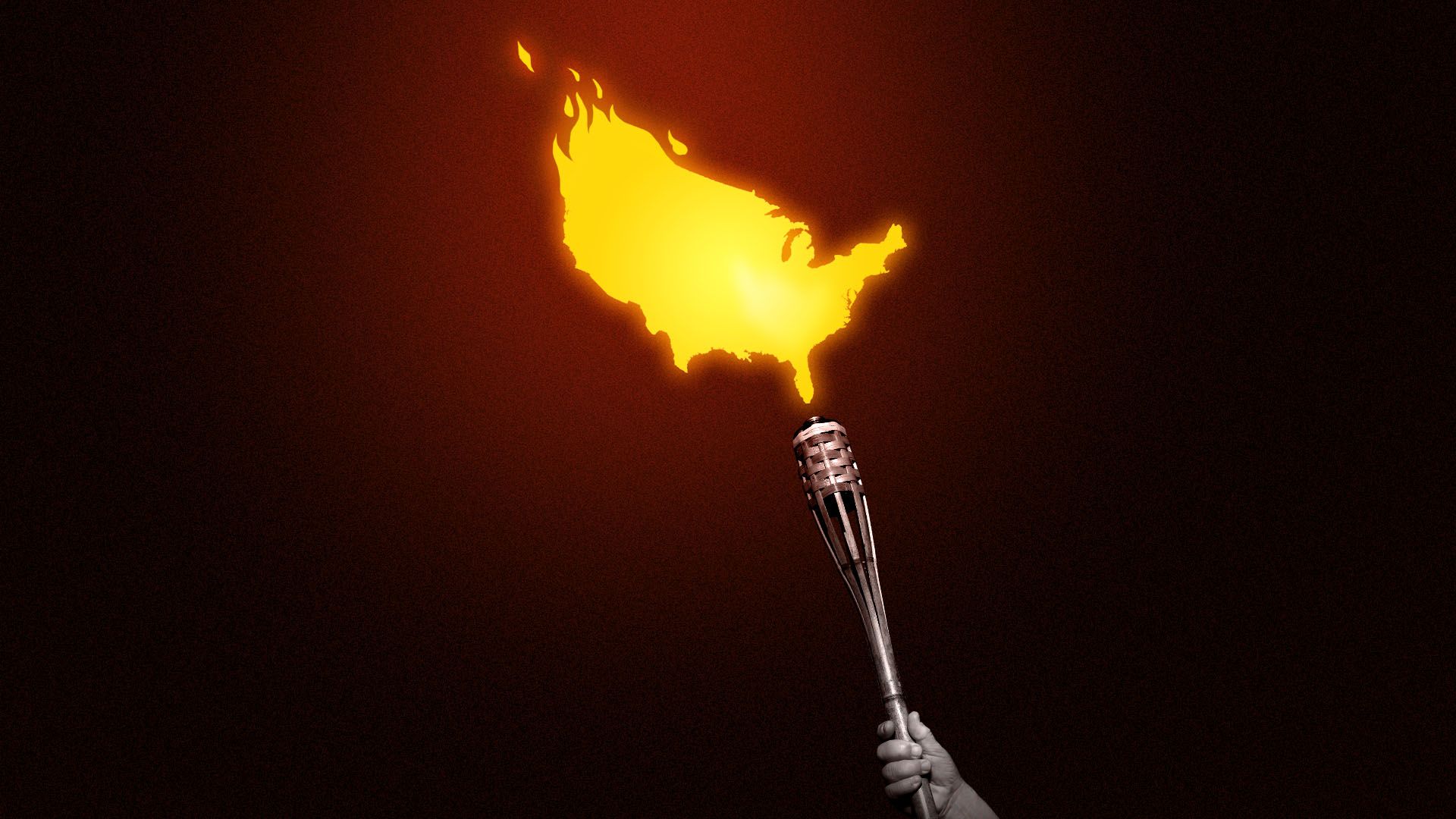The era of white nationalism
Add Axios as your preferred source to
see more of our stories on Google.

Illustration: Sarah Grillo/Axios
White nationalism — a racist extremism that was confined to the ugly fringes for most of our lives — is a growing major danger in America.
The big picture: Racial resentment and anxiety have been a central appeal for Donald Trump and his rhetoric among the working-class, forgotten Americans who put him over the top, and who are at the core of his re-election strategy.
- The appeal to alienated young men, combined with the country's gun culture, creates a leading incubator of the mass shootings now plaguing the country.
- In the past 18 months, white-extremist active shooters in the U.S. have been responsible for 65 deaths in seven episodes. (NY Times)
- Both parties are calling out the ideology after the El Paso massacre by an Anglo who complained online of a "Hispanic invasion": George P. Bush, a Hispanic Republican who is Texas land commissioner and the grandson and nephew of former presidents, warned this weekend of "white terrorism here in the U.S."
- The FBI says homegrown violent extremists are now a top concern — "a persistent, pervasive threat," director Christopher Wray called it in April.
- Two weeks ago, Wray said the bureau had made 100 arrests for domestic terrorism in the past 9 months, with many tied to white supremacy.
The data: "Right-wing extremists killed more people in 2018 than in any year since 1995, the year of Timothy McVeigh’s bomb attack on the Oklahoma City federal building, according to the Anti-Defamation League," per the NY Times.
- The reality: 2019 is worse.
We're seeing all this unfold before our eyes on social media.
- "The Great Replacement," a white-nationalist conspiracy theory cited by the El Paso suspect, has gone viral on fringe platforms.
- The suspect's online manifesto spread widely, despite efforts to contain it: An analysis by the social-media intelligence firm Storyful found the manifesto was shared hundreds of times on Facebook and Twitter.
Storyful found that white nationalists drove a substantial amount of online conversation during last week's Democratic debate.
- Sen. Kamala Harris has been the target of right-wing nationalist conversation online, largely due to her background and race.
Russian bots have long been fueling the white nationalist movement in the U.S.
- Foreign actors have used race to sow divisions in the wake of mass shootings and debates around race, including Charlottesville and NFL kneeling.
Despite all the flashing warning signs, the FBI has been criticized for being slow to focus enough resources on the danger.
- FBI officials recently told Congress they were conducting "about 850 domestic terrorism investigations — a decrease from a year earlier, when there were roughly 1,000," the WashPost reports.
Why domestic terrorism is hard to stop, via the NY Times:
- Compared to broad powers to disrupt foreign terrorist plots, "domestically, federal officials have far fewer options. A federal statute defines domestic terrorism but carries no penalties. The First Amendment ... makes stopping terrorist acts committed by Americans before they happen more challenging."
And mainstream conservatives have been slow to confront the reality.
- The Department of Homeland Security warned in 2009 that the greatest threat to domestic security was far-right extremism, not foreign terrorists.
- The Obama administration was ripped by Rush Limbaugh and others on the right who felt victimized.
Between the lines: White nationalism is the subtext and text text of the 2020 presidential race, as the reality of a shrinking white population sets in and big states, including Texas, turn increasingly diverse — and blue.
Go deeper: America's hate problem

